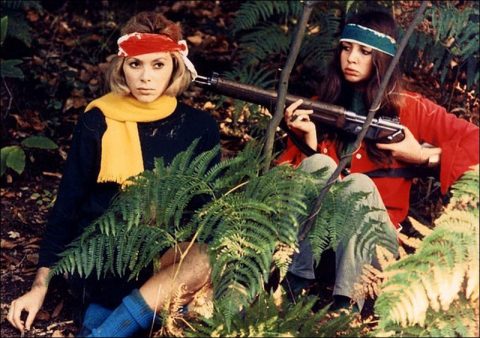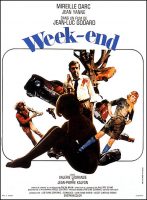The Week End by Jean-Luc Godard. “I came to inform you that the Grammatical Age of Modern Times is over and that the exaggeration begins in every field, especially in the cinema.”
The Week End (1967), which includes the timeless class conflicts, the violent and bloody criticism of the bourgeoisie, the numb and concentrated point of the massacre that civilization has come from, the barbaric, pro-capitalist individuals living in the slaughter, the hollow bodies immersed in gold, arrogance and blood, is the most end of Godard cinema. is one of the striking and political productions.
The weekend journeys of our characters, Corinne and Roland, turn into a surreal painting with the effects of the New Wave and the extraordinary critique of the bourgeoisie. The film, which we can not adapt to the story, with the horn, plane sounds and music over the speeches, the complex event flow that breaks the rules, the split and colorful writings between them, uninterrupted scrolling movements and jumping, and a highly dynamic fiction, also carries elements of alienation on top of it.
Week End; with its fairy-tale characters staring at the camera and making speeches, with the intermediate writings that say that it is a movie we watched at every opportunity; Although it is difficult to express, in its simplest terms, “third world” is a story of a “path” that is unique and unique. Carrying its message in its name, Week End takes place in a world where the meta-bourgeoisie is dragged to the end. If Godard and his cinema were a graffiti; Breaking the rules with Jean-Luc Godard! Long live the cinema!
The Week End (1967)
Directed by: Jean-Luc Godard
Starring: Mireille Darc, Jean Yanne, Jean-Pierre Kalfon, Karl Marx
Screenplay by: Jean-Luc Godard
Cinematography by: Raoul Coutard
Film Editing by: Agnès Guillemot
Music by: Antoine Duhamel
MPAA Rating: None.
Distributed by: Athos Films (France)
Release Date: December 29, 1967
Views: 185




